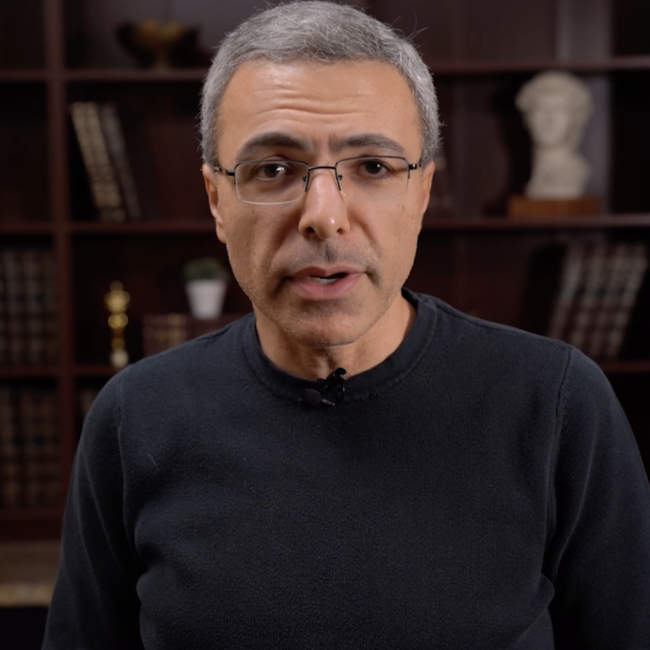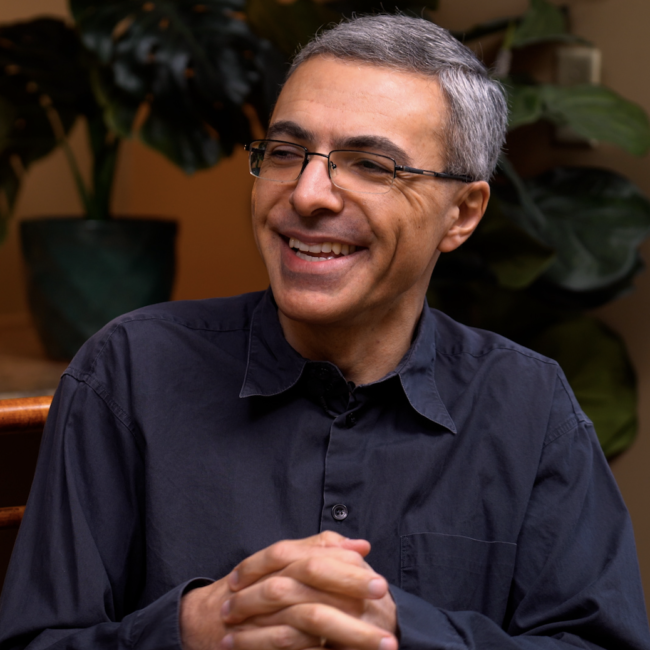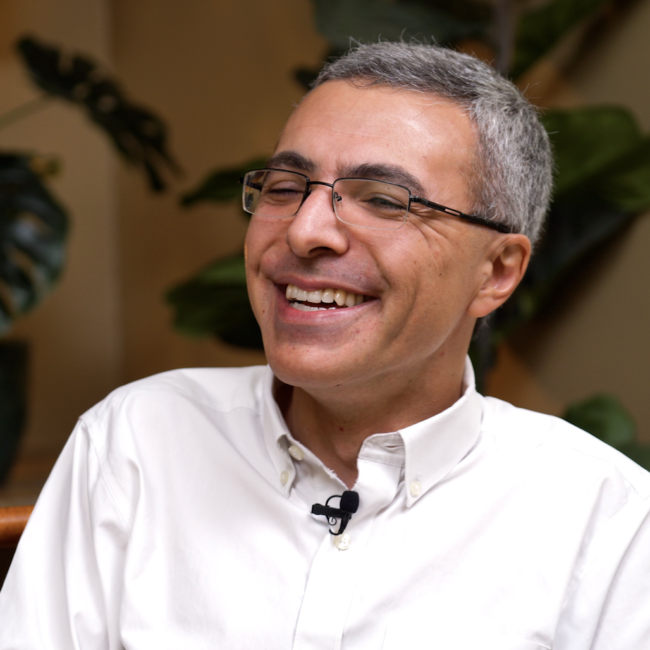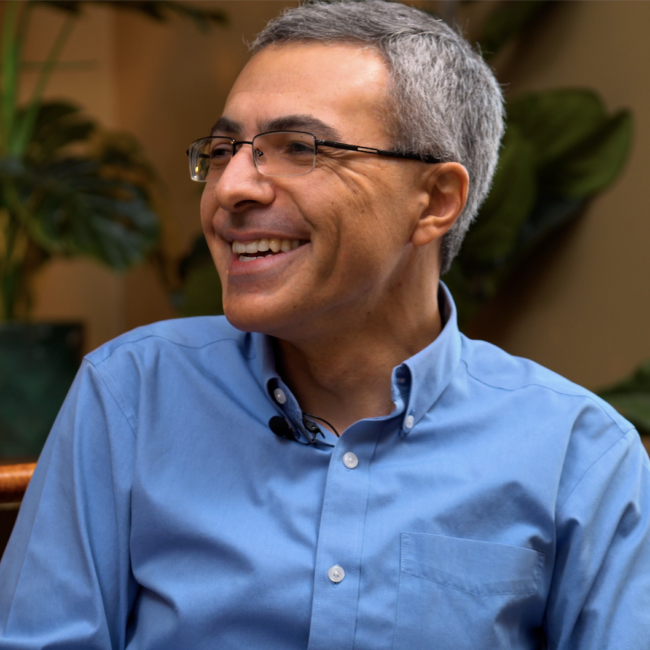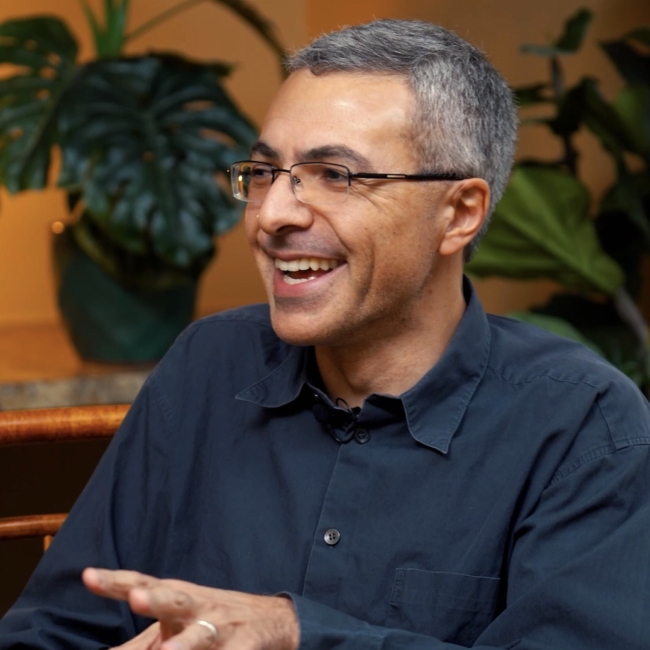
Season 1: Episode 7 – Too Much Of A Good Thing: Working At A Multi-Hospital System
About Episode 7:
Episode Transcript:
Dear Healthcare It’s You: Episode 7
Elisha Yaghmai
The problem they had was that they'd invested a lot of money in this building. So the building hospitals need to be full with the way the American health care system works. The hospital to survive needs to be full. So you fix them? Absolutely. Yeah. It needs to be full. Right. So think about the conflict that's already there. Yeah.Elisha Yaghmai
This building has to have people in it to continue to run. What do you think? The hospital's here to promote the health of the community. The case is right, but really, it needs to have sick people in it to continue to run. So a common experience that we would have in that environment was we would get called to admit people to hospital that didn't need to be in a hospital.Jo O’Hanlon
Welcome back to do health care. It's you. Welcome back to the podcast. I'm Joe Allen and this is Dr. Elijah Yang Mine from the Free State Health Care Clinic in Wichita, Kansas. Thanks for being here again. And today, we're kind of talking about the last part of your medical journey that led you towards starting what we've just mentioned, the free state health care clinic.Jo O’Hanlon
So last we were up in Parson's, where you were during doing rural medicine at a hospital. You were hospitals there. And then you had mentioned in the last episode that it was your wife had a fellowship that she was going toward. So that brought you to Seattle, right? So tell us about that chapter of your experience.Elisha Yaghmai
So Seattle was the complete opposite end of the spectrum, what, from rural health? So the hospital system I was working in was a multi hospital system.Jo O’Hanlon
Meaning that there.Elisha Yaghmai
Are multiple.Jo O’Hanlon
Hospitals.Elisha Yaghmai
All related to each other when they shared records and everything else got.Jo O’Hanlon
Sort of what you were talking about.Elisha Yaghmai
Yes. So they were all together. It was obviously in the heart of a large.Jo O’Hanlon
City.Elisha Yaghmai
And it had basically every conceivable resource, like it was almost anything that you could want, really specialty, almost any diagnostic tool, almost any lab, whatever it was they had.Jo O’Hanlon
All of it. Yeah. There. Were you a hospitalist again?Elisha Yaghmai
I was, yes, I was a hospice. I did a combination of days and nights at different times. Okay. What was going on? Worked in all the different hospitals that they had. Some are more community facing, some were kind of tertiary or quaternary referral, meaning they get the referrals from the places that have already tried to work on the case and can't they run to the end of what they can do and then they refer it up the chain.Elisha Yaghmai
So, it was a it was a regional referral center, meaning people were calling in from different states in some cases. Right. To send in cases.Jo O’Hanlon
So, for similar reasons that you were talking about last episode. Yes. Yeah. More than they had there. 00:02:22:02 - 00:02:43:12Elisha Yaghmai
At my hospital. And I don't have whatever it is or I can't figure this case out. And you need to take over whatever it was. Gotcha. Those people would be would be calling in from around the area. So professionally, that was I mean, it was a very is an excellent experience from a professional standpoint, because we got off those types of centers do cases that are nowhere on the normal pattern.Elisha Yaghmai
Right. So, the patients coming in often are very complicated. They have all kinds of they have all the traditional problems. They have all of them, and then they're having some other problem. And then, you know, sometimes it's typical cases that you have. But in other cases or in other situations, you know, it's a type of problem where there's no you can't read a textbook to figure out what to do about this, Right?Elisha Yaghmai
No protocol for it. There is no guideline for it.Jo O’Hanlon
Which was your M.O..Elisha Yaghmai
Except.Jo O’Hanlon
It's like, read everything.Elisha Yaghmai
But there isn't anything. So now you're just you're in the realm of what I would describe as expert opinion, Meaning we're going to take some physicians that do this and only this.Jo O’Hanlon
Yeah.Elisha Yaghmai
They're very focused in this one area. They have a lot of experience doing this, this very narrow thing. We're going to put them all together and everybody is just going to stand there and kind of do this type of process and discuss and try some things and sort of see what they can get to navigate the problem. Right?Elisha Yaghmai
Because the level of complexity is just so high.Jo O’Hanlon
Within the hospital's infrastructure. Like it's this like calling out, no, no.Elisha Yaghmai
No, this everybody is there. Everybody and everything is clustered within this wire, within this one place.Jo O’Hanlon
Right.Elisha Yaghmai
So so it enables you to provide a pretty high level of care and a fairly well coordinated level of care, I would say, as well. And so, you know, having the opportunity to work in that environment professionally was very, very helpful because I saw a bunch of things that I had not seen before. Rare, rare cases that I had not previously been exposed to.Jo O’Hanlon
Yeah.Elisha Yaghmai
You know, just got going. So again, going back to that model of sort of feeding in information. Right. And trying to to to burn in patterns, We've just expanded your base to do that.Jo O’Hanlon
How many patients were you seeing a day at the time?Elisha Yaghmai
It would vary. So during the day we might have 14 or 15 people that we were seeing and we might do some admissions right at night. At night that was often very busy. You might have, you know, eight or ten admissions depending on what was going on. Could be could be more depending on the night.Jo O’Hanlon
Yeah.Elisha Yaghmai
And you were busy. So like when you were on Night Call, you know, there were there were several hundred beds in the hospital. You know, you'd be running around kind of cross covering the whole service. Cross covering means if anything happens to the patient between 7 p.m. and 7 a.m., any event goes on, the nurses will call you.Elisha Yaghmai
They won't call the daytime doctor. They'll call the nighttime doctor to handle whatever that is. And at the same time, you're being called for any admissions to the hospital. Anybody that codes if their heart stops. Right. You responding to that? Anybody that's starting to get sicker, respond to that. When I first got there, the ice used were still open at that point.Elisha Yaghmai
So if it was nice new patient, you'd be there. You're just kind of going all over the place and doing that kind of work. So, you know, from that element, it was fantastic. And they had specialty on, they had heart and stroke, specialty hospital and all these things, right? So you'd go work there and it'd be just all these special heart patients and very, very sick and with specific pathology, you know, and just be going down these different areas.Elisha Yaghmai
And while I was doing that, I maintained a second job working at an urgent care in the area because because I wanted to maintain a touch with ambulatory or outpatient medicine. So I worked to that job. So I did my hospital shifts and then I had my urgent care shifts. I did both at the same time and then and then I periodically also I'd go down and work.Elisha Yaghmai
So they had a pediatric emergency room. I'd go down there and work from time to time. That was like a moonlighting gig on top of the other stuff. And then I'd periodically come back to Kansas periodically to round on the on the inpatient pediatric service here in Wichita. Yeah. So I would do all of those things.Jo O’Hanlon
Why would they like that's unique. Why would they do that? Why would they have you come from.Elisha Yaghmai
So and at that time? Well, I just at that time well obviously had graduated from the program, right?Jo O’Hanlon
Yeah.Elisha Yaghmai
Me and then at the time they were they had a need they had a need to fill the staffing at the time.Jo O’Hanlon
For similar to what we were talking about last year, just filling in. Everybody runs off for a week.Elisha Yaghmai
That's exactly right. Right. They didn't have enough staff to cover every single shift, right. So when they had to open shifts and I'd periodically would fly back in and come to shifts for a week or something like that. Yeah, go home.Jo O’Hanlon
Were you saying during the time I mean, so much work.Elisha Yaghmai
I mean, yeah, it was.Jo O’Hanlon
Like coming off of the rural place. It sounds like it was a, that was a little bit of a difference where I mean, you were five days a week, so it was a lot of hours and stuff. I being.Elisha Yaghmai
Seven. No, I'd be doing sevens in the rural place. Yeah. So I'd be on checking all the patients doing that, but then every two weeks I'd have a weekend off.Jo O’Hanlon
So, I did okay.Elisha Yaghmai
Yeah. No, in this place. I mean, I was, I was working very, very frequently. Was it st, I mean on some level probably it wasn't.Jo O’Hanlon
But I mean I'm just thinking of humans, I guess. I didn't.Elisha Yaghmai
I didn't feel.Jo O’Hanlon
That way. Yeah.Elisha Yaghmai
But I think it's also because of the stage. I was right. Right. I had recently come out of training. This is the first time all the training wheels are off, right? No one is right. No one is looking over your shoulder anymore. You don't have any kind of a safety net.Jo O’Hanlon
Yeah.Elisha Yaghmai
You're in charge, like. And the buck stops with you.Jo O’Hanlon
Right? And what you did have in the rural setting, too.Elisha Yaghmai
I did, but that was something.Jo O’Hanlon
Very different for me.Elisha Yaghmai
So we left. You know, it was I mean, a similar was an extension of that. But it was but it's just, you know, I would say there's a big learning curve when you come out of medical school and got residency. Yeah. And then there's another huge learning curve when you go from residency into being the attending physician, because now you make the decision and there's nobody else that has any more accountability than you do, right?Elisha Yaghmai
What's going on. So that again, a and.Jo O’Hanlon
Accountability or liability.Elisha Yaghmai
Right? Both both of those. Right. And so you come out the other piece I would say is that training environments tend to get a little bit circumscribed, meaning there are certain types of patients, certain types of problems that are very frequent in training. Yeah, there's a whole nother world of medicine that frequently takes place outside of the training environment that you don't get exposed to in training unless you do some moonlighting like I describe, you don't get to see it.Elisha Yaghmai
This was this was the full world. Right now you're getting everything from everywhere all the time. It's all coming in.Jo O’Hanlon
Big city, hub playground, almost for a learning.Elisha Yaghmai
Yeah, that's correct.Jo O’Hanlon
Yeah.Elisha Yaghmai
So that was the you know, that was the professional environment in which in which I was operating. And so, you know, for a, for a while that was, that was kind of all consuming and you know, and I think and I don't I don't regret it and I don't have any regrets about doing that at all. I learned an enormous amount, for sure, you know, and both both from the work and then also from the people that I was working with, recognizing these were people that have been practicing for a number of years.Elisha Yaghmai
Right? So I'm working with them and learning from what they do. And, you know, seeing the handing off patients, all these things were going on. So it was great from that that side. I think that, you know, the flip side of it was also seeing the kind of, I would say described as the downside of some of these places, which is on from a medical perspective.Elisha Yaghmai
There were times when we couldn't turn it off would be the way I would describe it. So so for example, I had one I had one patient that came in at the time. That patient had esophageal cancer, which had ruptured so top the hole in his esophagus, and he'd had basically secretions from his intestinal tract go into his lung.Elisha Yaghmai
he also had had recently had lung cancer. That was I think at that point I think I was in treatment, if I recall correctly. Right. So he at that time was on he was requiring three different medications just to keep his blood pressure at the bottom end of normal. He was on a ventilator, on a breathing machine.Jo O’Hanlon
Right.Elisha Yaghmai
He had an active cancer which just popped his esophagus open. Right. And then had another different cancer also going on. So I think, you know, you look at that type of situation. Right. And this was this was an older gentleman, right. You look at that situation and say, you know, maybe, maybe we should stop here. Yeah. And the reason you say that is because cancer that advanced is is probably not going to go well.Jo O’Hanlon
Right.Elisha Yaghmai
If there's going to be a lot of medical complications is going to be a lot of just harm even from the therapy given. Right. Right. And so maybe this is a situation where we should we should consider a different course, right?Jo O’Hanlon
Yeah.Elisha Yaghmai
And so I tried to sit down. sorry. Go ahead.Jo O’Hanlon
Your time like quality of life two and in the meantime, there's.Elisha Yaghmai
A whole discussion you have, right, about quality versus quantity. What matters more to you? Right. But it was a type of situation that in a smaller environment, probably everybody would have stopped, in part because there were no resources to go further.Jo O’Hanlon
Right.Elisha Yaghmai
But in this environment, every resource was available. So I tried at the beginning to sit down to the family and say, you know, this is a terminal situation. He is not going to live no matter what we do, right, he will die.Jo O’Hanlon
Yeah.Elisha Yaghmai
So it's only a question of when does he die Now and does he do we take all his meds away? And what will happen is he's going to go to sleep. It's probably not going to be painful to our knowledge. He's going to go to sleep. He's not going to wake up. Yeah, that's what's going to happen versus we're going to keep all these things going.Elisha Yaghmai
We're going to keep the tube in his throat. We're going to keep poking him for labs. We keep all these meds. I don't even know when he'll get off of any of these or if he ever will for them. Right. Right. And then we keep trying to do, you know, diagnostic workup and all these other kinds of things.Elisha Yaghmai
So I met with the family. I expressed that to them. And their only question was, well, what does the surgeon say? He had a surgeon involved in this case. What does the surgeon say? So the surgeon comes in, it's like, well, you know, there's this, you know, narrowing in his lung and the CAT scan. And, you know, we need to find out if that's a recurrence of the lung cancer, if it's something else.Elisha Yaghmai
Right. And I'm saying, well, this doesn't I'm not sure this matters. Right. And I'm not sure it matters at all.Elisha Yaghmai
And, you know, they of course, they went with the hopeful message, which is find some things. We're going to do some tests and, you know, we're going to get through this. And so, you know, the end of that case was he spent three weeks in ICU. He never came off the ventilator. They did a bronchoscopy three different times on him to try to biopsy the narrowing in his lung.Elisha Yaghmai
I don't know. They may have gotten something diagnostic on the third try, if I recall correctly. Right. I mean, it doesn't take those two.Jo O’Hanlon
Features.Elisha Yaghmai
Well, they have to go down your throat and have to sedate you and go on. If no, he was probably on sedation because he was hard. It but I mean and I wasn't involved this character the entire time by went off the case but I followed along and he you know any and he died right after two weeks in the ICU and multiple invasive procedures and all this other stuff.Elisha Yaghmai
They were do care and he died, which is what we could have done two weeks before. Right. But we we because we have all these tools, all these tools, all these resources, but the default mode was do right, right. Got to do something. You got to do something. You got to do something. And I would say this is this is generally true of medicine at that level.Elisha Yaghmai
Right. The question is not should we do this? Question is, can we do this right? And the problem is that medically, ethically, humanly, the most important question is almost always, should we do this? Right? Right. Those questions were frequent. And there are many, many, many other examples, right, in that environment where what we were doing from one perspective was kind of insane.Elisha Yaghmai
Yeah, and I've since talked to docs that have worked in other large centers and many of them have shared similar experiences, right? It's just not clear what we were hoping to achieve with this. Right. And then I'll go to the opposite direction. So I had another patient. This was a very elderly man who's thoroughly demented, had just no idea was going on.Elisha Yaghmai
Right. Yeah. And he his power of attorney was his daughter. Right. And so what would happen is he would decompensated every so often. What does that mean? Decompensated means he would just get very ill. He'd get acute will for whatever complication, because what he would do is go home and line about what would happen. Right. So every so often lying in a bed is bad for you.Elisha Yaghmai
Right? Right. When you can't when you have. No, you're not. Your mind is not clear. Right. So you could swallow something the wrong way. You get bedsores, you get an infection, whatever. Right? Yeah. So she would bring him in every couple of weeks with these events and we would go through the process of reviving him again and again and again and again and again.Elisha Yaghmai
Right. Is very you know, every time you have to poke him for labs and do all these other types of things right. And it's very clear, even though he was demented and he would try to fight off this stuff. Right. Anything we would do him those painful he would fight. It was just just really obvious from looking him like this is just miserable.Elisha Yaghmai
Like it's just miserable. He doesn't get anything out of it. He doesn't know what's going on. All he knows is in this place, it's not the normal place. Right. And these people just keep torturing him, Right? Right. This is what's going on, you know? And so here again, I tried to you know, I tried to talk to the daughter and she said, well, you know, I keep I bring him in here because, you know, it'd be so hard for me if he died.Elisha Yaghmai
I would really I would just really have a hard time with that stuff.Jo O’Hanlon
Would you laugh? But as you know, from the family side of things, right? No, it's reality.Elisha Yaghmai
No, no, I get it. I got it.Jo O’Hanlon
But yes, but.Elisha Yaghmai
But at the same time.Jo O’Hanlon
You're saying this patient.Elisha Yaghmai
This person is suffering, right? You wouldn't do this to your pet, right? You wouldn't do this.Jo O’Hanlon
Some people might.Elisha Yaghmai
Maybe they would. Maybe they.Jo O’Hanlon
Would. Right. But but that's. Yeah.Elisha Yaghmai
So you know, when I think the difficulty with that Right. Was that I'm standing there with a straight face saying, okay, you understand this is like this is actually the other piece. So she said, I know that he hates it when I bring it here. I know he hates it. I know that he doesn't like it. But I couldn't stand to have him die.Jo O’Hanlon
Right.Elisha Yaghmai
Right. You know what I mean? And that that's a that's a there's a there's some kind of an ethical conflict in. Right. Right. That that needs to be hashed out. But it's not hashed out. Right. Right. The answer is the person with the authority says.Jo O’Hanlon
Do it as. Yeah.Elisha Yaghmai
So we do it right and we do it again and again and again and again and again. Until sometime when that same gentleman finally crashes so badly that we can no longer keep his body moving forward. Right. And then he will die, right? Right. By force. He will die by force. Right.Jo O’Hanlon
Right.Elisha Yaghmai
This is this is the reality. And so I think, you know, again, you have to ask in those situations, is that how this should go?Jo O’Hanlon
Right.Elisha Yaghmai
I'm not me. I'm not even it was obvious what my opinion is.Jo O’Hanlon
But it it almost like hearing you say that I'm like I, I think that it could be beneficial for some of the bedside manner to include that honest conversation at those earlier times, which it often doesn't.Elisha Yaghmai
It often does not.Jo O’Hanlon
Because, you know, sometimes maybe the family needs an authority to let them know that there is another option. I mean, that's what happens at the vet when you when you take your pet and it's like they are too sick and you get advised to put them down or things like that, you know, it's like that that becomes part of the conversation and not that we're putting people down, but yeah, yeah, but you know, I think that there there comes that point in conversation that is missed a lot in any sort of medical setting, not every time, but a lot of doctors bedside.Jo O’Hanlon
I've been in the room with many people have died in the hospital and a few not many but it's like to get the doctor that tells you like it. It would be beneficial if you tell them that it's okay to go like or, you know, those releasing things. It's like that makes a huge difference to be able to have that conversation.Jo O’Hanlon
Do you feel like you were allowed to have that conversation or was it not able to like because you were working with so many other doctors? It was not always your call.Elisha Yaghmai
This is that that's precisely the issue, right? So so I would try to have the conversation at any time. I felt it was necessarily.Jo O’Hanlon
Yeah.Elisha Yaghmai
The difficulty a lot of times is that it depends very much on the psychology of the person, right? Some people want to cling to what they perceive to be any any hope, right? So if you say, I think this is really the right time to stop. Right. But some other person comes in and says, no, we have this whole list of toys and tools that we could use to do blah, blah, blah.Elisha Yaghmai
Right? Right. And they present that as being super helpful. What may actually be.Jo O’Hanlon
Helpful and.Elisha Yaghmai
Helpful. Helpful and helpful, right? Yeah, they may be they may be missing the forest for the trees. Right. The issue and and this happens in many cases where the person that's coming in only sees the tree. They see their one little area and say, well, you know, I could I could do some more working here. Right. Yeah. Without understanding that the entire forest is actually on fire.Elisha Yaghmai
Yeah. AT But the problem is that the family again doesn't the family whoever it is right. Doesn't have any way to assess this. Really. Yeah. So they go with who's offering me the most hopeful sounding message, right. Even if it's not at all reflective of reality.Jo O’Hanlon
Right. Because it feels like there's an obligation to do that. Yes. To your loved ones. And that's. Yeah, that's a really difficult point in medicine. I feel like in the bedside manner category of things. But yeah, I guess it complicates things more to have more ability to do more, right, because then it makes that question a lot more open ended.Jo O’Hanlon
Like when do we start to have this conversation?Elisha Yaghmai
Yes. Yeah. And that's a you know, in those in those settings, you know, to to some degree, it's almost you die by permission. That's not 100% true. But to some degree it's true because at this point, medical science is good and we can flog bodies along for a long, long time. Yeah, but we cannot necessarily give you back your quality of life.Jo O’Hanlon
Right. Right. Which is a really important distinction there is.Elisha Yaghmai
But the two are often confused, right? Yeah. So when you're walking in an environment, you don't know anything about medicine, right? You all you've heard is all the marketing from this place about, you know, how much hope and right care they provide. Right. And so you're expecting your what you're expecting may be very different than what can be done.Elisha Yaghmai
Right. But the two look like the same. Yeah.Jo O’Hanlon
From your perspective, which is not even to speak to the amount of debt that could be accumulating in the meantime, that will be left for those that are left behind.Elisha Yaghmai
Massive. Yeah, in many cases. Yeah. So added to that, you know, the other thing that became apparent over time was that a lot of modern hospital care and modern medical care in general, the United States operates in what I would describe as the medical industrial complex. Okay. What I mean by that is we talked a little bit a little while ago about sort of this concept of just cranking volume.Elisha Yaghmai
Yeah, you're just you're just moving people through, moving people through not necessarily mindfully, Right.Jo O’Hanlon
Cranking through factory. Next thing.Elisha Yaghmai
Next thing. And we saw enormous amounts of that, right?Jo O’Hanlon
So even with it being a referral center.Elisha Yaghmai
yeah, yeah, yeah. Because, you know, so for example, there was a, there was a new branch of that hospital system that was started in one of the smaller outlying communities. Right. Okay. So we would go there to work and the problem they had was that they'd invested a lot of money in this building. So the building hospitals need to be full with the way the American health care system works.Elisha Yaghmai
The hospital to survive needs to be full. So, you know, Yeah, absolutely. Yeah, it needs to be full. Right. So think about the conflict that's already there. Yeah. This building has to have people in it to continue to run.Jo O’Hanlon
Well.Elisha Yaghmai
Now you think the hospital's here to promote the health of the community, whatever the case is. Right. But really, it needs to have sick people in it to continue to run. So a common experience that we would have in that environment was we would get called to admit people to hospital that didn't need to be in a hospital to.Jo O’Hanlon
Your like to that branch that you're speaking to.Elisha Yaghmai
So this would go out to that one. The work was very well known, right? So we would get called and they would say, I'll give you a good example. So I get you know, I had one what they described to me were, you know, they told me the patient, I think, had some kind of tumor or something along these lines.Jo O’Hanlon
Right? Yeah.Elisha Yaghmai
I go in and talk to the patient. It turns out the tumor is very well known and they've got it's not even if it's not malignant and it wasn't the problem. It wasn't the problem at all. Right. So what was presented to me as the reason for admission was not the reason for admission. I called the patient's doctor to confirm all of this was all true.Elisha Yaghmai
Yeah. I then got the patient's actual story, ordered a couple of lab tests, diagnosed or discharged or. This all took 30 minutes.Jo O’Hanlon
Yeah.Elisha Yaghmai
So, in other words.Jo O’Hanlon
She was about to be admitted?Elisha Yaghmai
No, she was admitted. she was. Because I was given. I was giving an incorrect story for why she was being admitted. Right. So I admitted her and 30 ish minutes later I discharged from the hospital, having correctly diagnosed the problem that she actually had, which was obvious if anyone had talked to her. Right, ordered the necessary tests, validated the diagnosis that the patient out the door with meds and follow up.Elisha Yaghmai
Yeah. So I did a 2000 or $3,000 primary care visit. Well done there. I had another one where they called and said the patient was vomiting. Right. Had to be, you know, had to be put in because they were vomiting. I go in and talk to the patient said, okay, I was told that you were vomiting. Yeah. That was two days ago.Elisha Yaghmai
Right.Jo O’Hanlon
And I said, tell.Elisha Yaghmai
Us about it two days ago. Then why are you here all? Because I called my doctor and they said, Well, if you're vomiting, you should go to the E.R. and get some labs, check to make sure everything is okay. And then they told me that I needed to be in the hospital. Right. And and I looked at this and said, well, man, your labs are there, actually.Elisha Yaghmai
All right. Yeah. All right. They told me that you were vomiting today. No, no, I wasn't vomiting today. So here again, I called the patient's doctor to validate the story because I was like, This is ridiculous, right? This cancer patient doctor completely validated the story. Yeah. Discharge the patient. Right. I had another one. They. They called me and said the patient patient's unresponsive, needs to be admitted to hospital.Elisha Yaghmai
Right. Okay. They roll the roll. The patient upstairs, I walk into the room, the guy is sitting up in bed looking at me and says, Doc, why am I up here? I said, Well, sir, I was told you were completely unresponsive. He was like, I told that guy downstairs, I didn't need to be in this hospital. Right. And I, you know, I mean, and in case there be cases where we would be called to, we would we would be called to do an admission, they would have done no intervention like they hadn't tried any therapy on the person.Elisha Yaghmai
Yeah, they had done no workup.Jo O’Hanlon
Because you can be treated in a hospital without being admitted.Elisha Yaghmai
You can sit in the emergency room, right? Yeah, You can be treated emergency room at home. Right. But instead what would happen was the person would come in with something that you could at least hypothetically turn into an admission. Right now, the reality was they wanted to be treated and sent home. That's why they came.Jo O’Hanlon
Right.Elisha Yaghmai
But, you know, doctors come into the room, said, no, this is really serious. You need to be upstairs. Right. So, of course, I mean, what are they going to question that? Right? So they would just admit them to the hospital. Right. And then the problem is that we would get the call and we would look and say the patient has been in the department for 15 minutes.Elisha Yaghmai
You have not ordered any of the appropriate medications to intervene in this condition to see if they could go home. You have not done any work up on them. Yeah. How do you know that they need to be in the hospital, right? Yeah. This these kinds of things went on all the time.Jo O’Hanlon
And so the point was it very clear from the beginning that it was about money?Elisha Yaghmai
No. Know, when I first started, it wasn't immediately clear.Jo O’Hanlon
Was it confusing? Like.Elisha Yaghmai
Yeah, initially it was, but it became more and more apparent. Yeah. So in the scenario that I'm talking about, eventually we got feedback that came down the chain that said, you know, you all need to stop obstructing the emergency room, right? yeah, stop obstructing the emergency room. And our perspective was we're not of the emergency room when they call us for something that general is be in the hospital.Elisha Yaghmai
We take it every time.Jo O’Hanlon
Right.Elisha Yaghmai
But when they call us with a patient that barely needs a doctor, much less needs to be in a hospital.Jo O’Hanlon
Yeah.Elisha Yaghmai
You know we are. What do you want us to do right now? I mean, it's what he wants to do. Because this is an expense, right? And this is. This is what I'm talking about, right? You're saying this this person's going to get charged thousands of.Jo O’Hanlon
Dollars, right, For this? Yeah.Elisha Yaghmai
That. That didn't need a hospital.Jo O’Hanlon
Right?Elisha Yaghmai
Right. So we're not.Jo O’Hanlon
So you're thinking on behalf of the patient still on their side of things like rather than the hospitals thinking we need beds, the is.Elisha Yaghmai
Thinking we need people in beds. Right. So that you can't.Jo O’Hanlon
Charge them for having been in a bed.Elisha Yaghmai
Saying it or not. Exactly. But you are funneling folks through, right? Yeah, but we are but we're saying and the E.R., there's reasons why the error does what it does, you know, which which we can touch on later. But from the patient's perspective. Right. I didn't go to the hospital to be admitted. I went to the hospital to have someone assess me, treat me, and hopefully send me home.Elisha Yaghmai
Right?Jo O’Hanlon
Yeah.Elisha Yaghmai
But instead, we're putting you in the hospital, which means you're you're getting a charge for hospital admission that you did not need. Right? I had.Jo O’Hanlon
I had usually multiple charges.Elisha Yaghmai
Right. Exactly. What are you going to charge me anyway? Right. The physician saw you in the hospital facility, right? Yeah. The testing you may have had done or any of this stuff could be in there. Right. But I had multiple admissions where I would admit the patient and discharge them within an hour. Right. That clearly was a patient that did not need to be.Jo O’Hanlon
A doctor and visit.Elisha Yaghmai
And it wasn't like they rolled back. They bounced back later because they got sick. No, they went home because they never needed to be admitted in the first place. Right. Right. But again, when you would do this, what you felt was the appropriate decision medically. Yeah. What you got from the higher levels was to stop blocking our E.R. from from putting people in the hospital.Elisha Yaghmai
Right. So this was, you know, that was a that was a reality of practice. Right. And so there were there were lots of other things that went on in that context that made it apparent that the goal here ultimately is, is is money just the generation of money? Now, you can say, well, you know, they're greedy in my hospital.Elisha Yaghmai
No, they all work like this at this point. I've worked in dozens of hospitals. Yeah, they work like this because they have to.Jo O’Hanlon
Right?Elisha Yaghmai
Right.Jo O’Hanlon
So, because they're a business.Elisha Yaghmai
They're a business. But it's not just their business in a thing that maybe should be a service in a different way. Right? Right. You could conceive of how it could be different.Jo O’Hanlon
Right. Right.Elisha Yaghmai
The issue that we get into. But yeah, I think that the problem that we have is what if I have a building that I must keep full of people, right. To to remain solvent?Jo O’Hanlon
Yeah.Elisha Yaghmai
My incentive is to keep that building full of people.Jo O’Hanlon
Right.Elisha Yaghmai
Whether they need it or not is a different question.Jo O’Hanlon
Right. Yeah.Elisha Yaghmai
And it's not even necessarily nefarious. In other words, I don't have any incentive to, for example, build an alternative structure to myself, right? I don't have a strong incentive to necessarily build up the primary care structure around. I don't have a strong incentive to help people get treatment outside of a hospital setting. Right. I may be in other words, my building may be the most expensive and difficult place for you to get care, but I have no incentive to seek or even contemplate an alternative, right?Elisha Yaghmai
Yeah. Because in doing any of that undercuts my finances, which undercuts my ability to survive. Right? So here on a system level, you could say, well, do we need hospitals? Do they serve some useful function in the community? I would say yeah, they do. They do some useful function. When you're operating them in a system like this, though, you are causing them their needs directly contradict the needs of the community.Elisha Yaghmai
Right? Right. Because the community needs health care that it can access and afford.Jo O’Hanlon
Right.Elisha Yaghmai
But the hospital's sort of main function is I need to get volume in here and I charge as much as I possibly can for everything that I do. And they will say, what's because I take care of all these uninsured people and other people have. But there's no reason that that has to be the system that is advanced because they act like that's the default system.Elisha Yaghmai
There's no other possible way you could do this health care thing. Yeah, none of that is true, right? So you've completely cut off any attempt at creative or alternative thought in terms of how to address these health problems, because there is no incentives at all for any business to any of these institutions to do this on a on a general basis.Jo O’Hanlon
What comes back to that question that I don't know if we've said it on screen or not, but what about asking like as a hospital, are the infrastructure of hospitals asking themselves, do we need to exist? Yes, in the same way. But, you know, that's a challenging question to the very nature of hospitals, but is an important one to ask.Jo O’Hanlon
Yes. Yeah. Sounds like you found that question there or was that before already kind of like in your mind having been in other hospitals?Elisha Yaghmai
It was it was percolating a little bit, but that it began to crystallize and then more. Right. Because it was I mean, I think, you know, all the all these stories that we've been through. Right. The they all have a system related cause. Yeah. They're not as simplistic as just a bad actor. Right. Bad day. Yeah. You know, those people are super greedy.Elisha Yaghmai
These people are shitty. Like, that's true. That's too. Well, number one, at this point, having worked on places I've worked, I've seen the same behavior a dozen different times in a dozen different places. Right, Right. So it's not just that's one bad, you know, one bad apple.Jo O’Hanlon
Just going to say it about the defund the police conversation where it's like, yeah, you know, at what point do we stop saying, well, there's always bad apples and start saying, well, like, yes, we're supposed to be picking the bad apples out.Elisha Yaghmai
Well, and it's not just that they're bad apples where people respond to incentives to some degree. Right. You know, you've you've built an incentive structure.Jo O’Hanlon
Right.Elisha Yaghmai
That pushes pushes people into a certain type of behavior. Is the favorable behavior to change the incentive. Right. So if you want different behavior, you need to ask, what incentives have I put forward? And are those the ones I want? Yeah. And is this thing doing in in my structure, in my system, in my community? Is it doing what I wanted to do?Elisha Yaghmai
It was doing something different than that. And if it's different than that, what do we do?Jo O’Hanlon
Right? Because it's like almost the access to affordable health. Well, I'll just say access to health care is like on it being unaffordable.Elisha Yaghmai
Yes, right. That's the idea. Right. So the fact that I charge $75,000 for a hip replacement ables me to care for the next two people to come in the door, they don't have any money. Yeah, right. Why do we have one?Jo O’Hanlon
Your insurance company already charges you this for the money that they don't use for the other people.Elisha Yaghmai
Right?Jo O’Hanlon
This is happening at multiple levels for everybody to get their books.Elisha Yaghmai
And as you escalate your price right, your your service becomes less and less and less and less accessible to anyone in your community. Right. So the average person's like, I don't want to go there. Right. Right. I can't go bankrupt. Me. Yeah, right. So, you.Jo O’Hanlon
Know, if you go in for stitches and you're going to get admitted because it's happened before or whatever like that, you can't afford it. Yeah.Elisha Yaghmai
So you're going to bills for the next two years. Yeah. Out of your money.Jo O’Hanlon
Right. Well, we're out of time, but next time we'll be talking about how all of this led to free state. Because I'm really interested. I still don't know all the ins and outs of free state, too. So I think that'll be a good opportunity to just hear more from you about free state and about why it's structured the way that it is and how you kind of found these ideas or came up with the ideas and then got the people place and all the, you know, things in place to actually get it off the ground and going.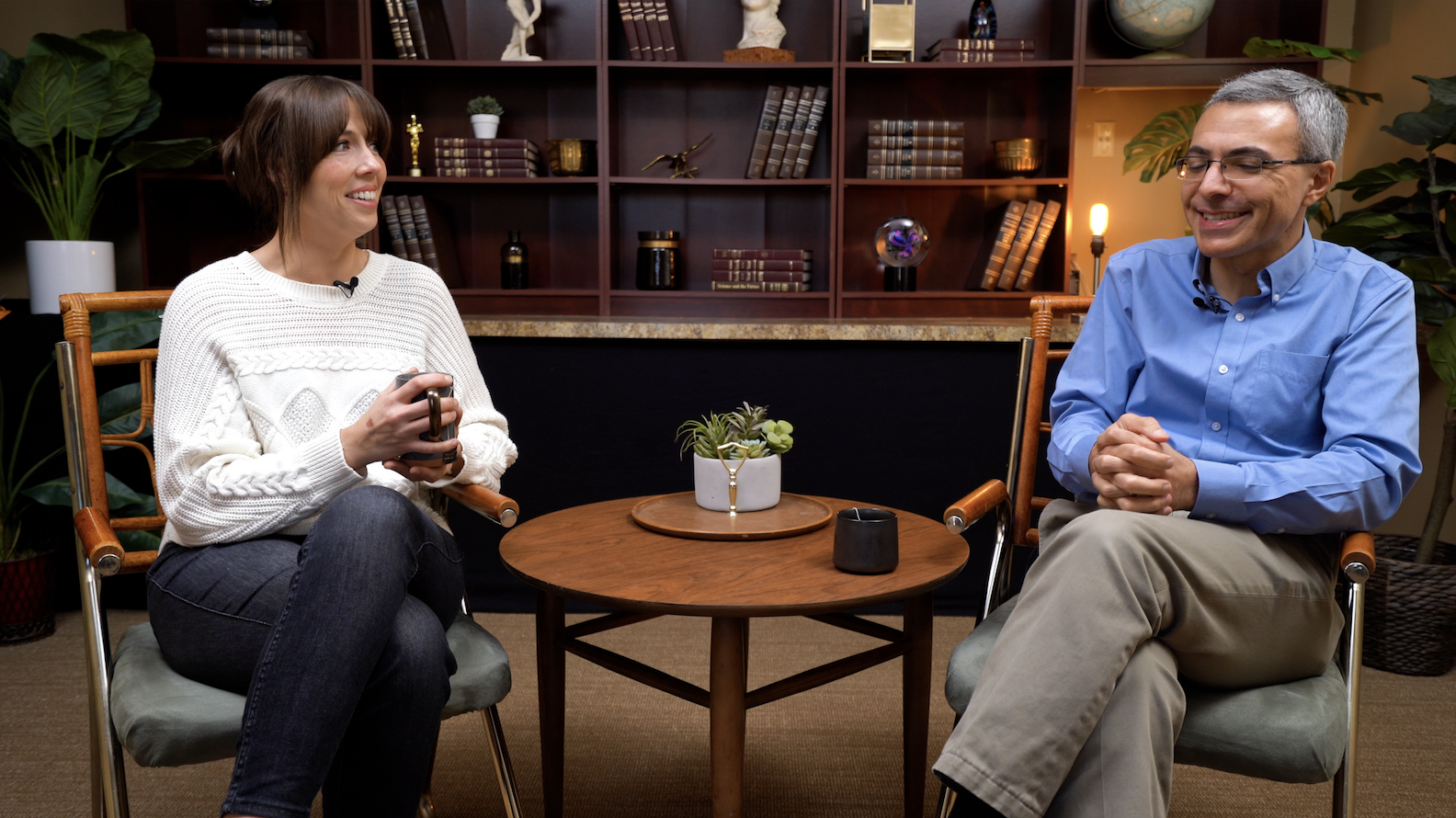
Meet your hosts:
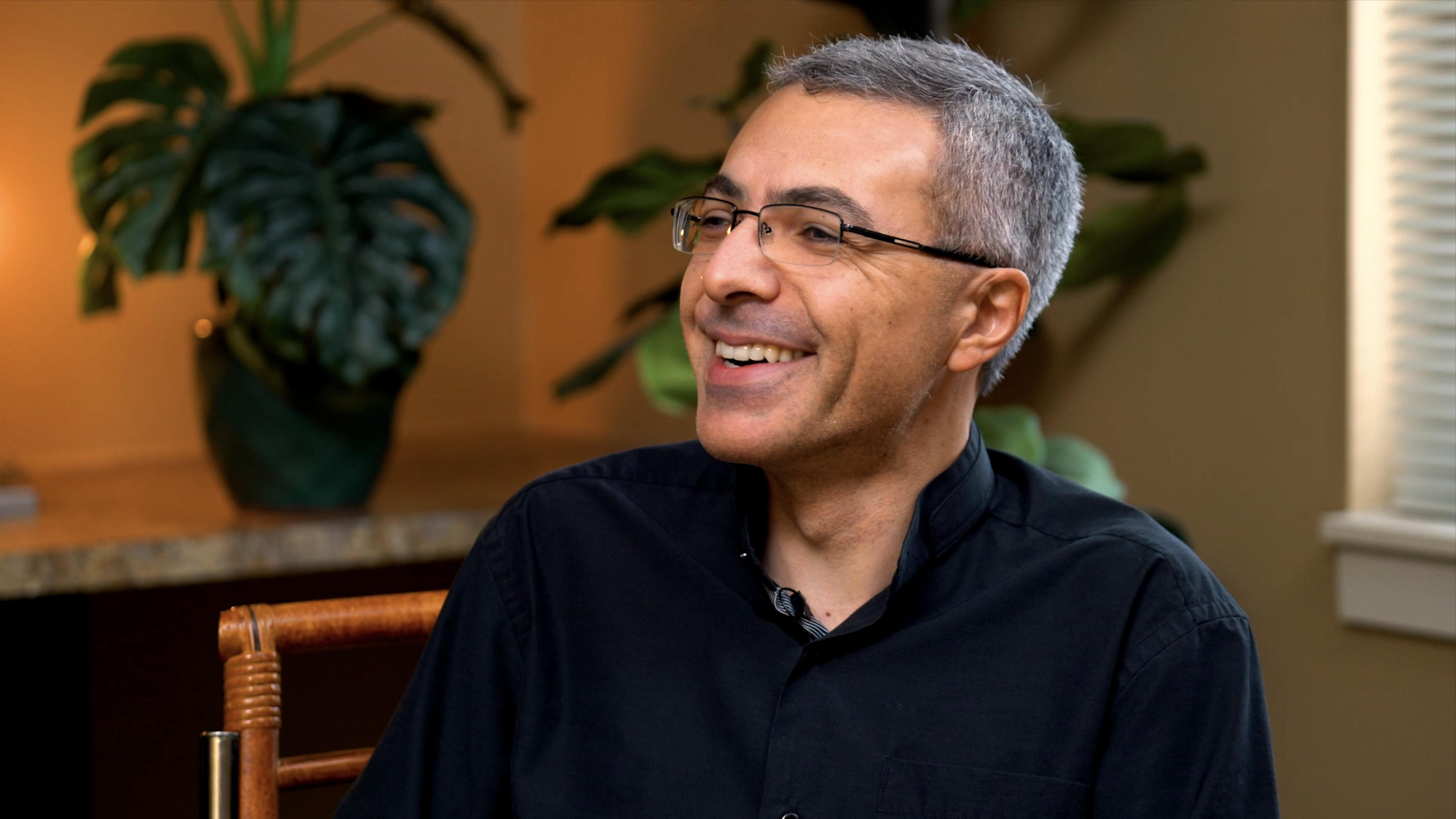
Dr. Elisha Yaghmai
Host
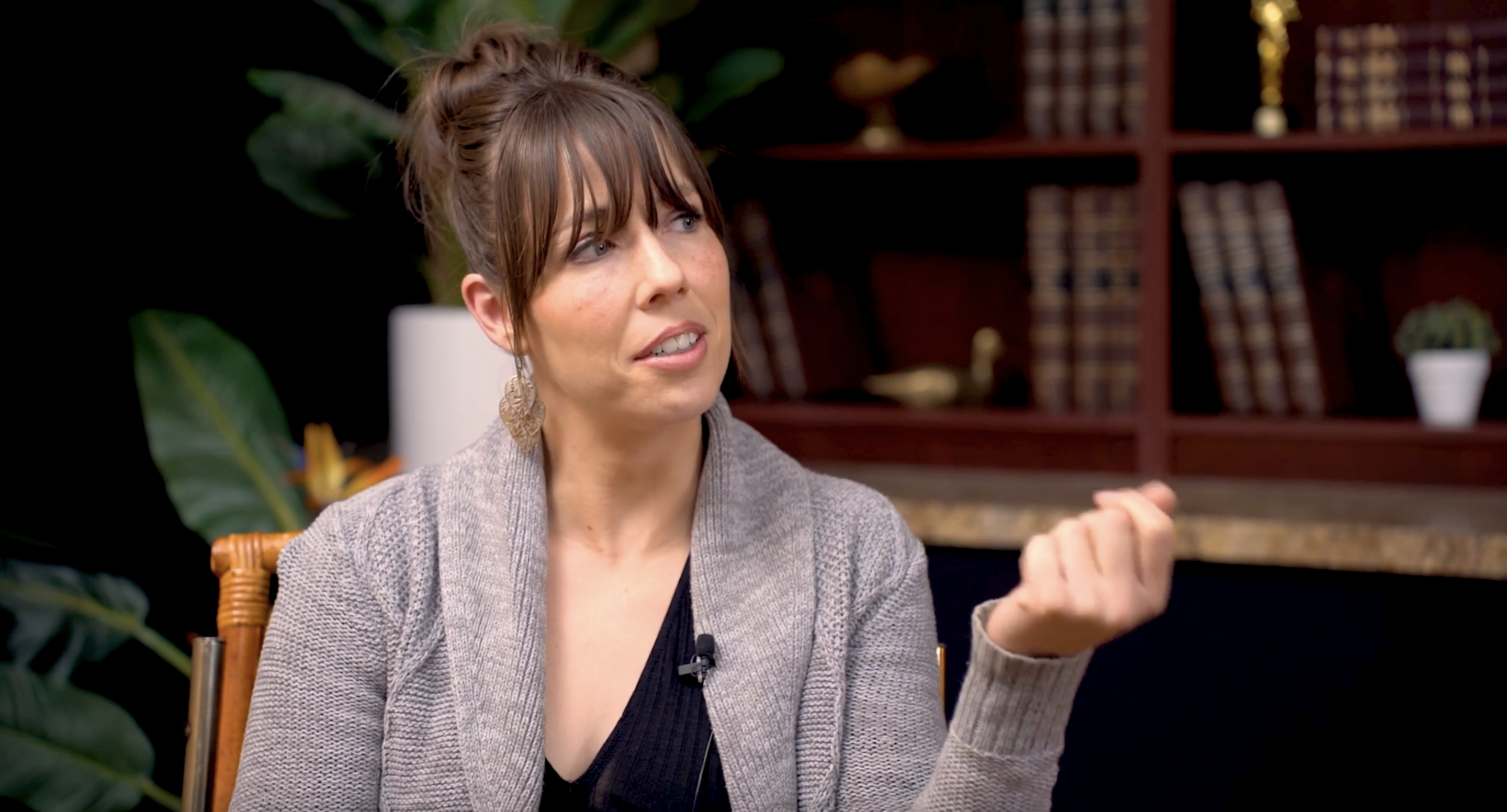
Jo O’Hanlon
Host




